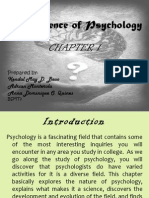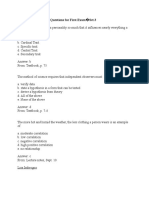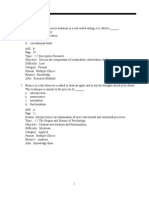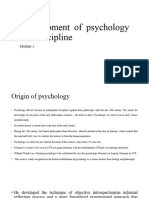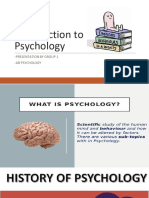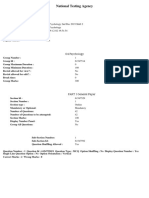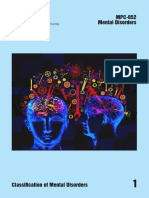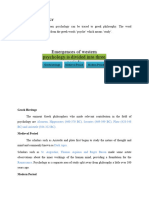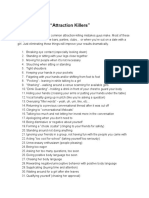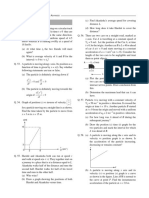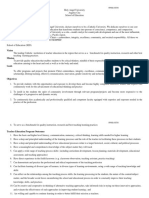0% found this document useful (0 votes)
895 views14 pagesPsy 101 - Course Contents and Modules
Introduction to psychology
Definition
School of thoughts
Uploaded by
simdimiles92Copyright
© © All Rights Reserved
We take content rights seriously. If you suspect this is your content, claim it here.
Available Formats
Download as DOCX, PDF, TXT or read online on Scribd
0% found this document useful (0 votes)
895 views14 pagesPsy 101 - Course Contents and Modules
Introduction to psychology
Definition
School of thoughts
Uploaded by
simdimiles92Copyright
© © All Rights Reserved
We take content rights seriously. If you suspect this is your content, claim it here.
Available Formats
Download as DOCX, PDF, TXT or read online on Scribd
/ 14
